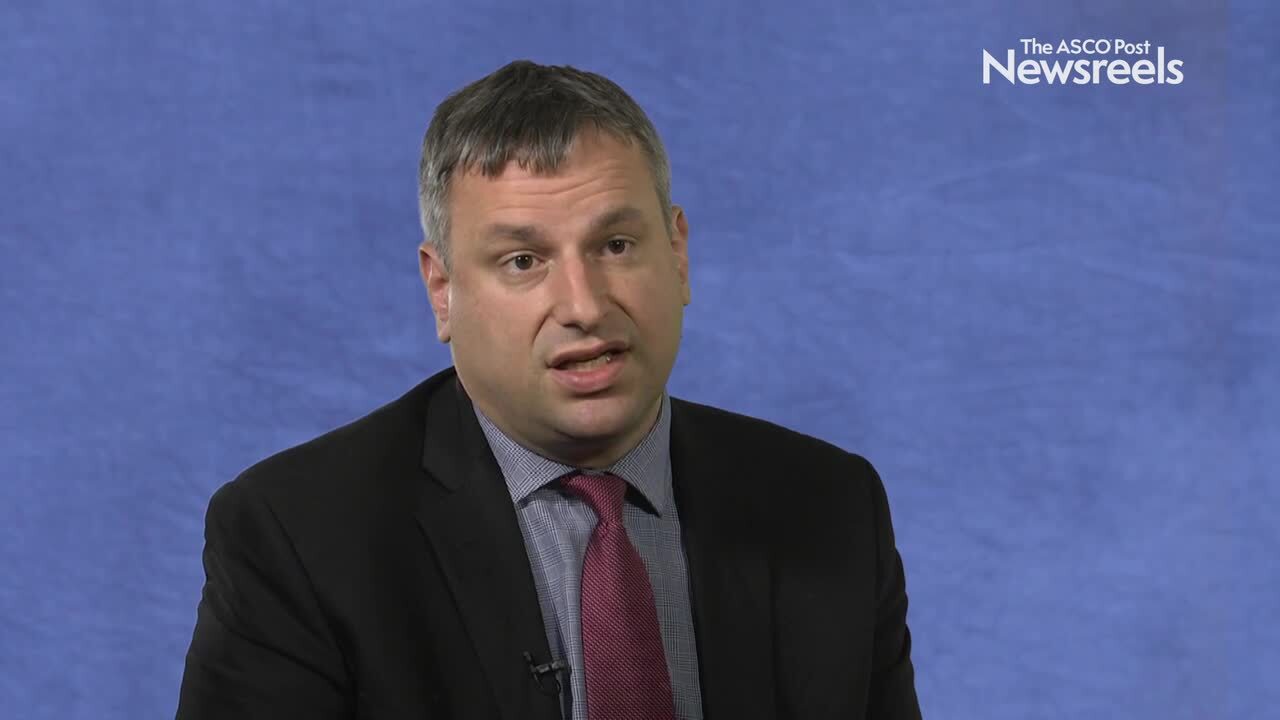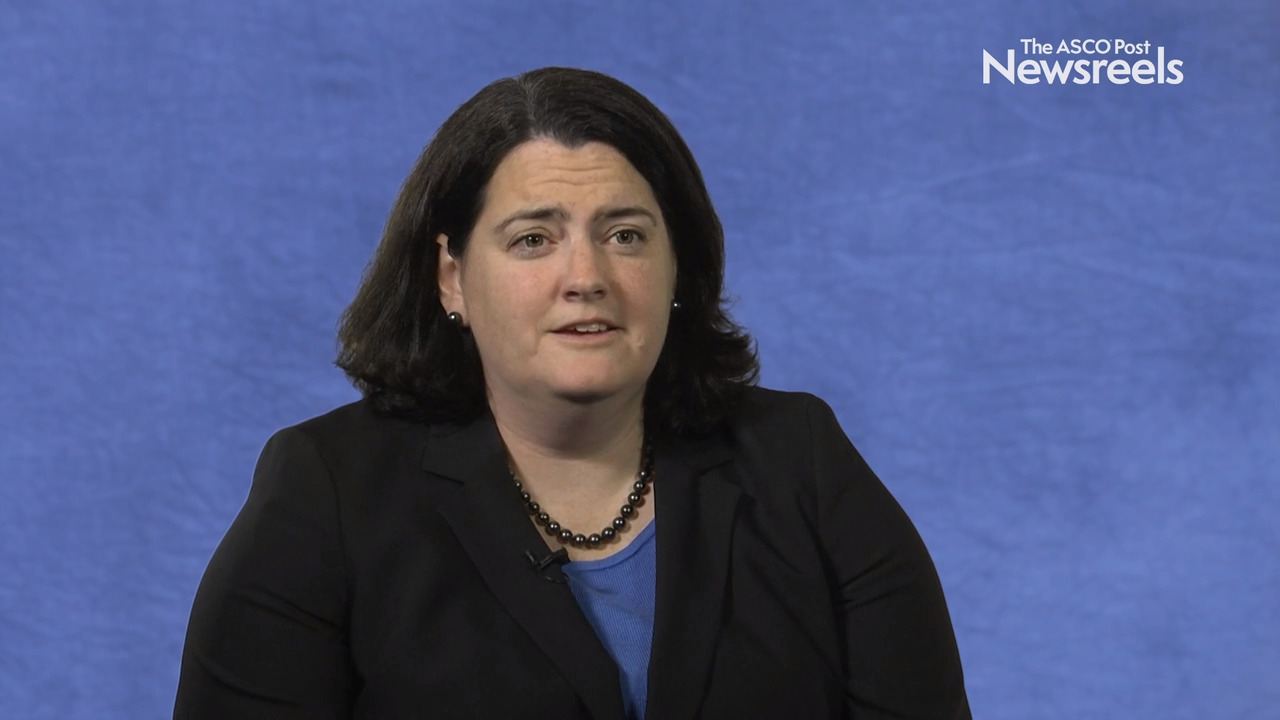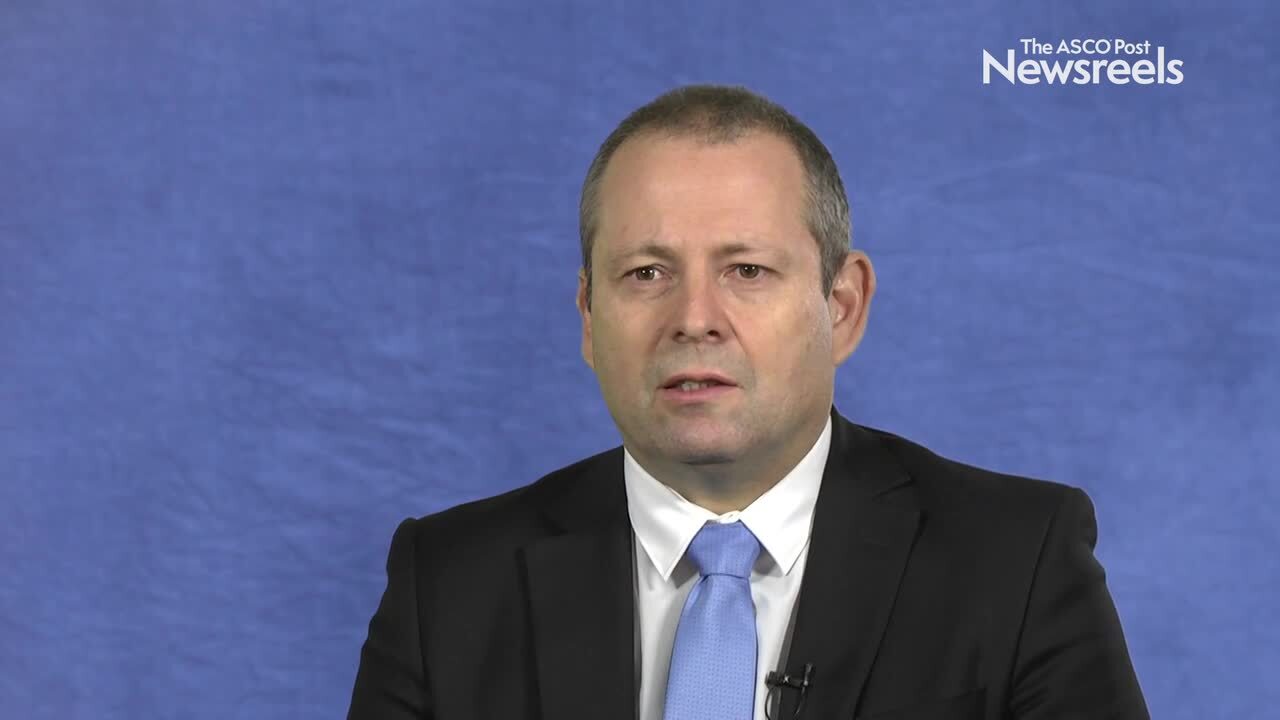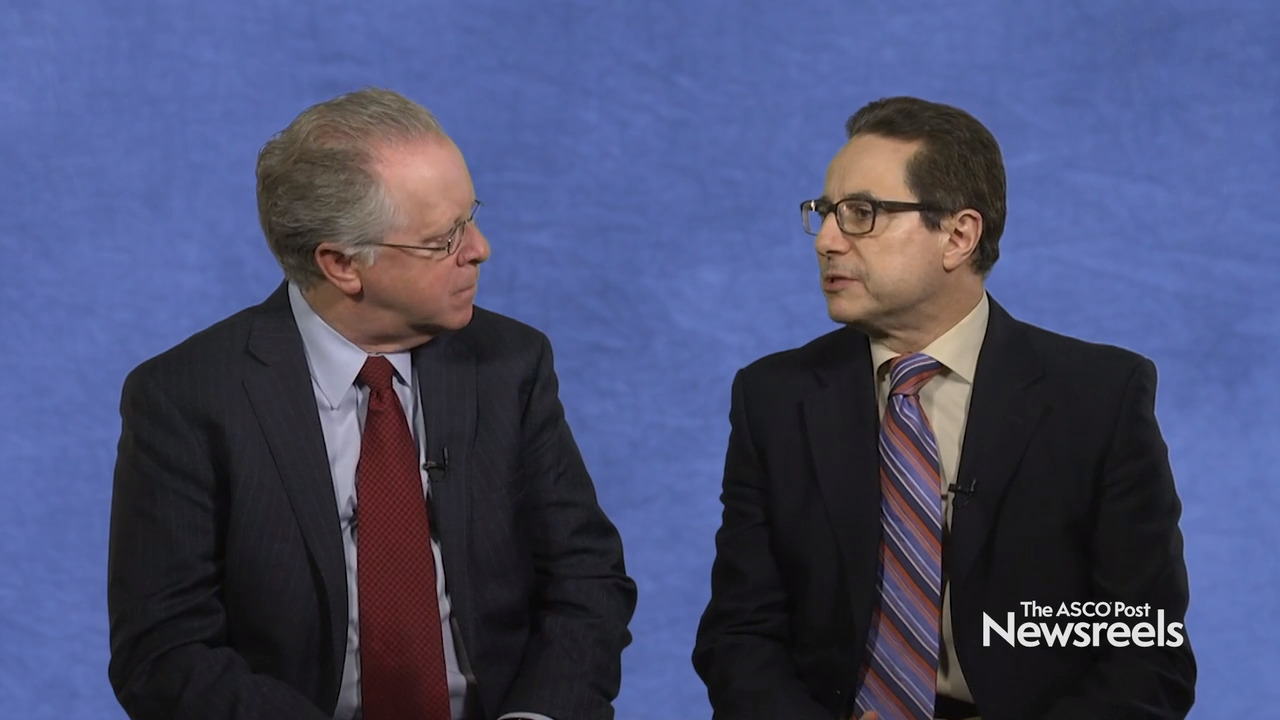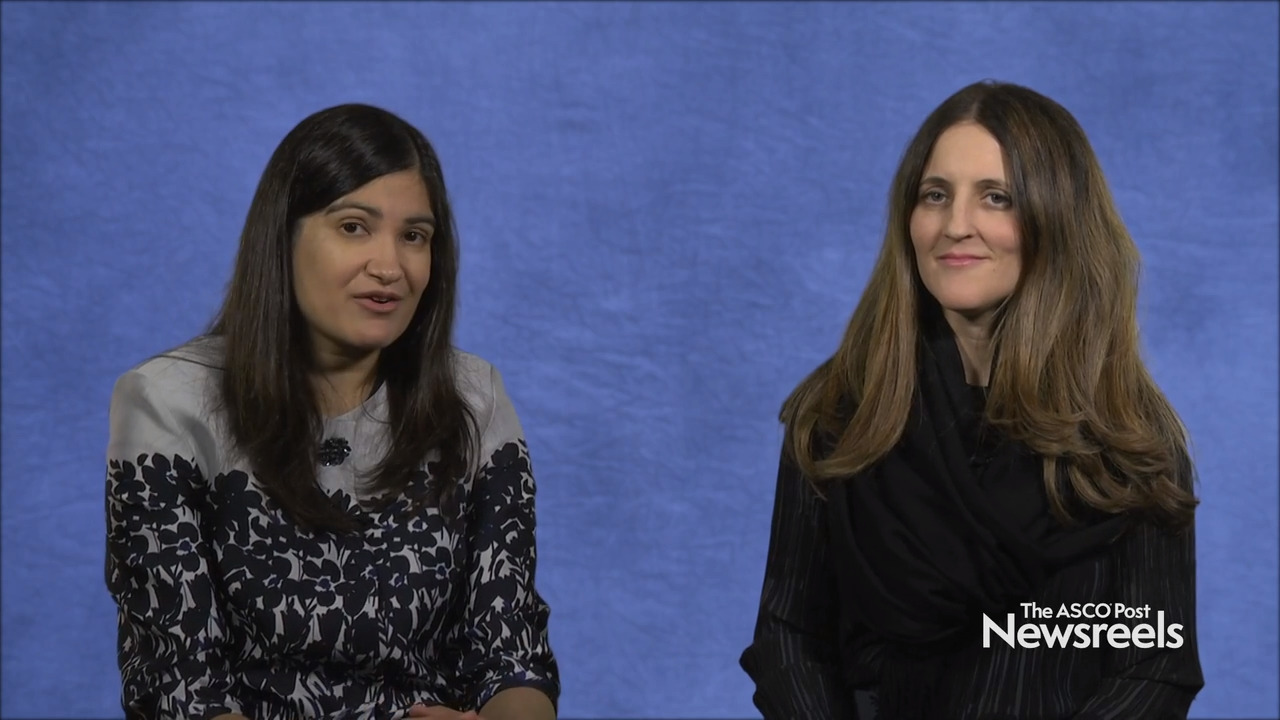François-Clément Bidard, MD, PhD, on Metastatic Breast Cancer: Using Circulating Tumor Cells to Direct Treatment
2018 San Antonio Breast Cancer Symposium
François-Clément Bidard, MD, PhD, of the Institut Curie and the University of Versailles, discusses phase III study findings on the clinical utility of circulating tumor cell count as a tool to choose between first-line hormone therapy and chemotherapy for estrogen receptor–positive, HER2-negative metastatic breast cancer (Abstract GS3-07).
Dejan Juric, MD, of Massachusetts General Hospital, discusses phase III study findings on liquid biopsy–based assessment of PIK3CA mutational status and the combination of the selective PI3K-alpha inhibitor alpelisib plus fulvestrant in the treatment of advanced breast cancer (Abstract GS3-08).
Laura S. Dominici, MD, of the Dana-Farber Cancer Institute, discusses the lower quality-of-life scores seen after unilateral or bilateral mastectomy compared with breast-conserving surgery in women younger than age 40 who are treated for breast cancer (Abstract GS6-05).
Xavier Pivot, MD, PhD, of the Paul Strauss Cancer Center, discusses final study findings comparing 6 and 12 months of trastuzumab in adjuvant early breast cancer (Abstract GS2-07).
Andrew D. Seidman, MD, of Memorial Sloan Kettering Cancer Center, and Miguel Martín, MD, PhD, of the Instituto de Investigacion Sanitaria Gregorio Marañón, discuss phase III study findings on adjuvant capecitabine after standard chemotherapy for people with early triple-negative breast cancer (Abstract GS2-04).
Reshma Jagsi, MD, DPhil, of the University of Michigan, and Rachel A. Freedman, MD, MPH, of Dana-Farber Cancer Institute, discuss the twin challenges of overtreating people with cancer and the missed opportunities and dangers of undertreatment.
